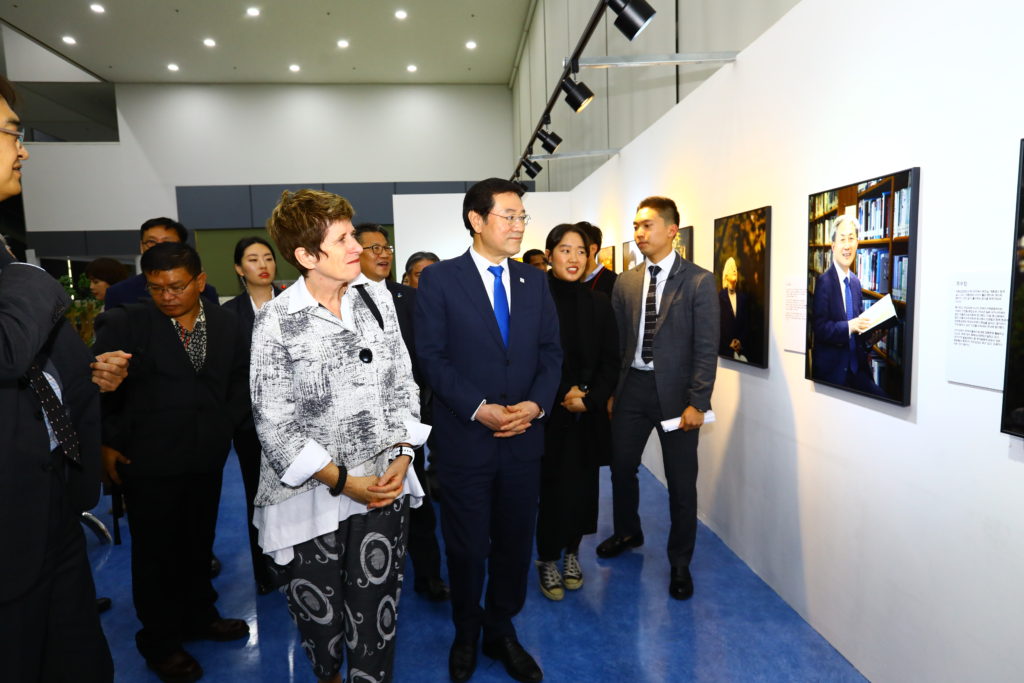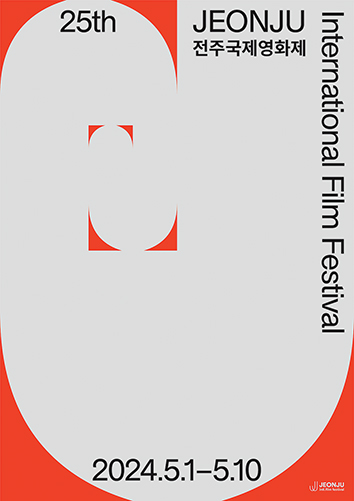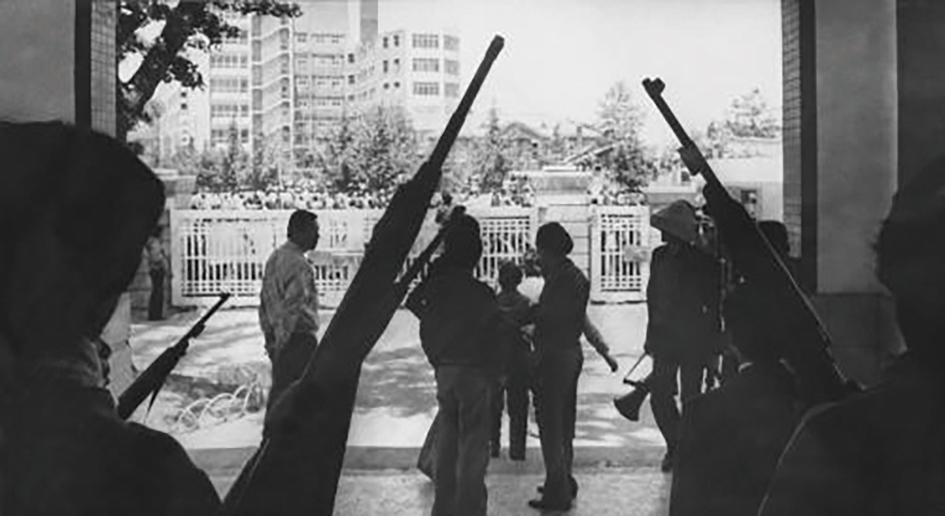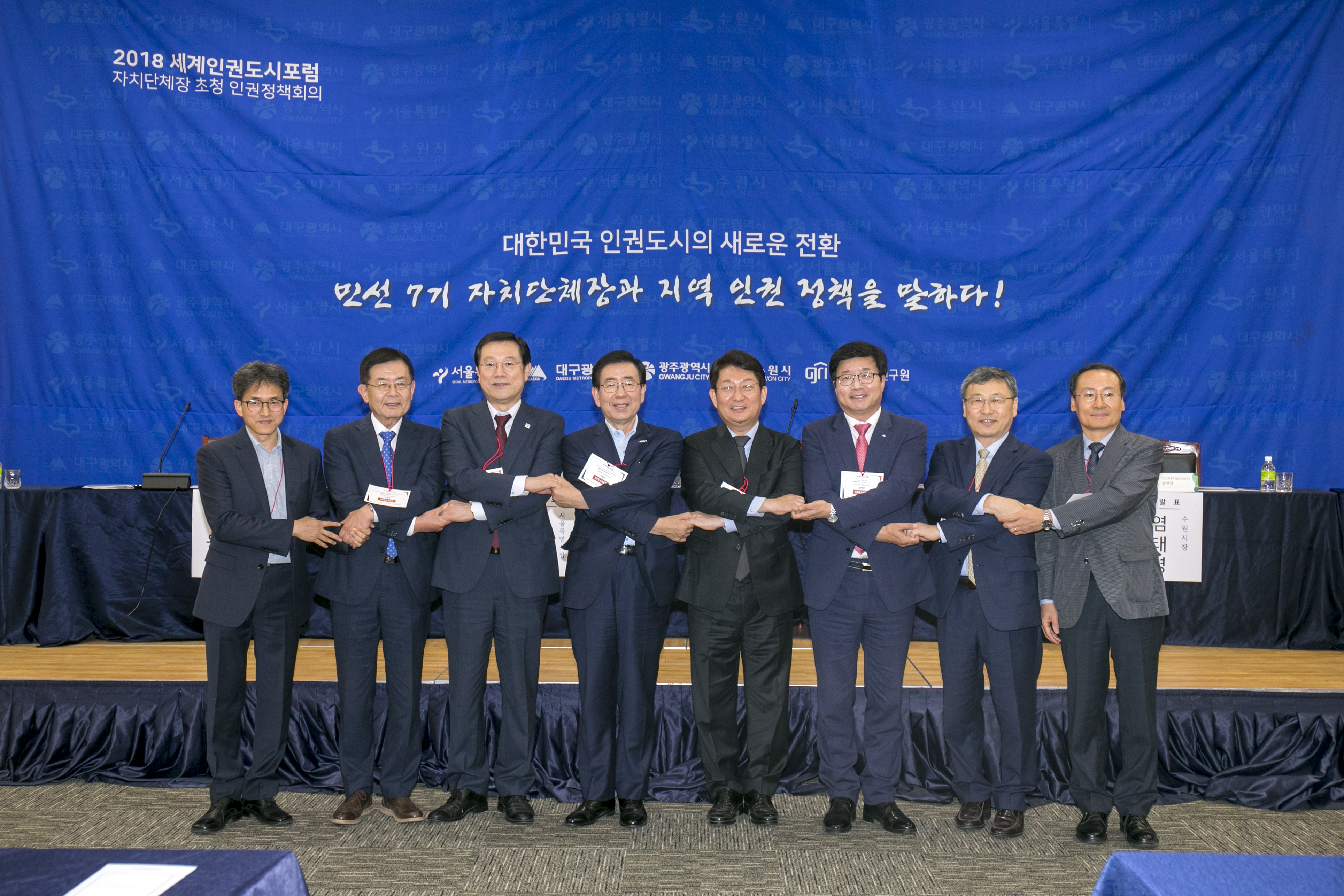Gwangju Continues to Lead the Way for Human Rights and Peace in Asia
Written by Danielle Thaysen
Photographs courtesy of World Human Rights Cities Forum Secretariat
A harmonious society, in essence, could be thought of as one that holds in very high esteem human rights and equality of all people. We live in an ever-changing world and globalization is real – it cannot be ignored. With globalization comes the movement of resources, goods, services, and of course, people. People tend to move to cities and countries that offer the greatest opportunities for work and to make a living.
When we look back into our history, migration is our shared experience as humans. However, without an awareness of the lives of our neighbors and newcomers in cities (and the surrounding areas), discrimination against people who are different can lead to human rights breaches. Common misconceptions about migrants, immigrants, and refugees start with a foundational failure to recognize such people as human beings with similar desires, hopes, and dreams who leave behind similar things.

Identifying the important role that cities play in promoting and implementing human rights for all, the city of Gwangju proudly hosted its eighth annual World Human Rights Cities Forum 2018 (2018 Forum) last month. The 2018 Forum delved into the issue of community by asking the question “Whom Do We Live With?”
Representatives and speakers from local governments and human rights institutions from all over the world gathered over a period of four days to discuss practical alternatives for strengthening diversity, inclusion, and peace in various communities, with particular focus on the topics of migrants, refugees, the right to peace, education, gender equality, and the rights of the elderly and the disabled.
In recognizing that policy implementation processes affect the lives of ordinary people, the 2018 Forum also invited members of the public to attend the event, and additionally organized a four-week Human Rights Bootcamp lead by Wilson Melbostad from the Organization of Migrant Legal Aid.

I was one of the 46 participants who were invited to take part in both the 2018 Forum and the Human Rights Bootcamp. In retrospect, I can say that I now find myself more enlightened about the human rights issues surrounding migrants and refugees in South Korea and the similar issues cities across Europe, South America, and Asia are currently facing.
It was an extremely insightful and fascinating experience getting to meet and listen to human rights experts from across the world who shared their stories and practical suggestions about how to give effect to human rights through the implementation of human rights policies at a local level.

I was particularly inspired by Aida Guillén Lanzarote from the Barcelona City Council, who believes that a city can change the world, and that it is up to governments at a local level to raise awareness amongst their citizens, who are generally in the majority population, about human rights, migrants, and refugees.
Encouraging awareness about whom we live with, creating opportunities to engage with our neighbors, and educating others in how to understand and connect with their feelings is important. True human connection breaks down walls in that it has the potential to diffuse ignorance, hate, prejudice, violence, ego, protectionism, and greed.
Nigina Khamdamova, a Chonnam National University student from Uzbekistan who also attended the Human Rights Boot Camp and the 2018 Forum, heard about the event through an announcement in class. She was interested in learning more about her human rights. “Being in Korea, I have heard so many cases of migrant workers who are being treated unfairly and abused,” she says. “Recently there was an incident with an Uzbek guy who was caught by immigration officers, and he was beaten and abused. I guess he was an illegal worker. Well, he was legally in the country because he was a student, but he had a part-time job, and that is not allowed.”

Commissioner of Human Rights Kate Gilmore view the opening of the Accessibility Exhibit in City Hall.
Another participant, Paik Joohee, a final-year economics student studying at Chonnam National University, also joined out of curiosity about human rights and the recent refugee situation in Jeju. “I want to study a way of helping refugees,” she says. Paik spent a year living in Taiwan where she made a variety of foreign friends from Taiwan, Indonesia, Vietnam, France, Mexico, Korea, Japan, and Malaysia. “I learned a lot about different cultures through them, and I realized that English is an important tool to communicate. After that year, I decided to study Chinese and improve my English. It was an amazing experience because I learned that the world is so big. At the same time, I saw many poor people and the discrimination these people faced,” Paik added. She would like to find a way to help poor people after she graduates.
I do believe that Gwangju, the city of democracy, human rights, and peace, in hosting and putting together such an extraordinary forum dedicated to human rights (not to mention its various other human rights initiatives), will put into practice what it has learned from other human rights cities across the world and pioneer a city connected in its different cultural identities, which other cities in the nation and abroad can admire and hopefully follow.
The Author
Daniellé is from the Republic of South Africa, where she is a qualified attorney. She currently lives in Gwangju, where she splits her time between teaching English, promoting education in human rights, and international law at the Global English Education Academy, and traveling to as many beautiful parts of Korea as she can.








